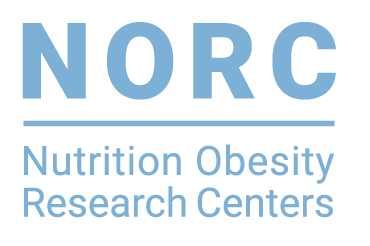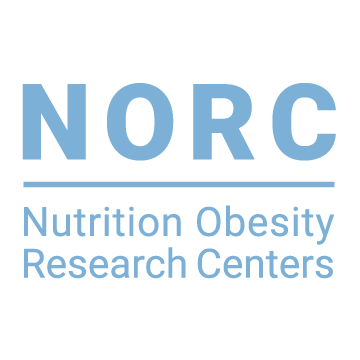Tag: Harvard Medical School
Activation of IRF1 in Human Adipocytes Leads to Phenotypes Associated with Metabolic Disease
Summary Chronic inflammation is thought to contribute to obesity-related insulin resistance. In obesity, adipocytes are an important source of inflammatory cytokines, but the mechanisms of adipose inflammation in obesity remain unclear. To determine transcriptional regulators of adipose inflammation, Cowan and colleagues compared transcriptional profiles of primary human adipocytes from obese donors with those from in vitro-derived adipocytes that were genetically identical to the primary adipocytes. Interferon regulatory factor 1 (IRF1) was identified as a mediator of adipocyte inflammation, as it was upregulated in primary adipocytes compared to genetically identical in vitro-derived adipocytes. Further investigation demonstrated that IRF1 overexpression in adipocytes … Read More »
Categories: Featured News, Publications Tags: Harvard Medical SchoolInfant nutritional status and markers of environmental enteric dysfunction are associated with midchildhood anthropometry and blood pressure in Tanzania.
Summary Childhood undernutrition and growth impairment remain substantial burdens in Sub-Saharan Africa. Environmental enteric dysfunction (EED), a subclinical condition associated with inflammation and malabsorpition in the small intestine, is associated with growth failure. As several studies have demonstrated that individuals with low weight in early childhood are at risk for cardiometabolic disease later in life, NORCH Associate Director Dr. Christopher P. Duggan, NORCH member Dr. Wafaie Fawzi, and others recently investigated whether EED in infancy is associated with cardiovascular risk measures in mid-childhood. Anti-flagellin IgA is a marker for EED and is significantly higher in Tanzanian infants compared to infants … Read More »
Categories: Featured News, Publications Tags: Harvard Medical SchoolMaternal Weight Gain During Pregnancy Affects the Infant Fecal Microbiota
Summary With support from a NORCH Pilot and Feasibility Grant, Dr. Lauren Fiechtner and others recently reported that gestational weight gain affects the composition and diversity of the infant gut microbiome. Using data and infant fecal samples from 84 infant-mother pairs, four distinct microbiota profiles were identified: Bifidobacterium-dominant, Enterobacter/Veillonella-dominant, Bacteroides-dominant, and Escherichia-dominant. Infants whose mothers had more weight gain during pregnancy were less likely to have a Bacteroides-dominant profile (risk ratio 0.83 [95% CI 0.71-0.96] per 1kg of gestational weight gain). Further, a larger amount of gestational weight gain predicted lower bacterial diversity. Key Findings The degree of maternal weight … Read More »
Categories: Featured News, Publications Tags: Harvard Medical SchoolHarvard NORC Newsletter – April 2017
April 2017 Bulletin We are now accepting applications for P&F awards! Please encourage junior investigators to apply! Visit the P&F Application page on our website for information and to view the application form. Our contact information has been updated, including a new email address: HarvardNORC@mgh.harvard.edu *Please feel free to reach out with any and all questions/suggestions/comments. The goal of the NORCH is to facilitate YOUR research and knowledge sharing, so we welcome constructive feedback from all our members and subscribers. Be sure to check out our updated website as well at: www.norch.org! Thank you to the Arnold Foundation & UAB NORC! … Read More »
Categories: Newsletters Tags: Harvard Medical SchoolHarvard NORC Newsletter – March 2017
Welcome to the NORCH! On behalf of the Administrative Core, we would like to welcome and extend our appreciation to all our returning and new members, and to inform the community of our newly re-organized Center. . We are very pleased to introduce our first official Monthly Newsletter! The NORCH is under new leadership and has re-organized. Many updates have been in progress over the last few months, including our NEW & IMPROVED WEBSITE; please visit and browse at: www.norch.org (we recommend using a Chrome browser if available). Anyone can subscribe to this newsletter through a form provided on the website as well. Our contact … Read More »
Categories: Featured News, Newsletters Tags: Harvard Medical SchoolInfluence of Maternal Breast Milk Ingestion on Acquisition of the Intestinal Microbiome in Preterm Infants
Summary The development of the intestinal microbiome in premature infants affects gut maturity and may mediate the risk for necrotizing enterocolitis. Dr. Gregory and colleagues demonstrate that preterm infants who receive expressed breast milk have greater initial bacterial diversity and more gradual acquisition of diversity compared to those who receive formula. Supplementation with pasteurized donor human milk partially promoted a microbiome similar to that of breast-milk fed infants. Key Findings Feeding with breast milk appears to have a protective effect against gut immaturity in the preterm infant. Citation Gregory KE, Samuel BS, Houghteling P, Shan G, Ausubel FM, Sadreyev RI, … Read More »
Categories: Publications Tags: Harvard Medical SchoolAn Ancient, Unified Mechanism for Metformin Growth Inhibition in C. elegans and Cancer
Summary Metformin is best known as first line treatment for type 2 diabetes, but in recent years it has become clear that it has anti-cancer properties and prolongs lifespan in a variety of model organisms. In spite of these remarkable effects, the mechanism by which metformin produces them remains elusive. NORCH investigator Dr. Alexander Soukas and colleagues determined that metformin kills human cancer cells and prolongs lifespan in the roundworm C. elegans by a common mechanism involving the nuclear pore complex and a gene of unknown function ACAD10. Metformin’s action on mitochondria leads to “closing” of the nuclear pore, reducing … Read More »
Categories: Publications Tags: Harvard Medical SchoolEffects of Roux-en-Y Gastric Bypass and Sleeve Gastrectomy on Bone Mineral Density and Marrow Adipose Tissue
Summary Through support from a Pilot & Feasibility award, Dr. Elaine Yu and colleagues investigated changes in bone mineral density (BMD) and marrow adipose tissue (MAT) in 20 adults with morbid obesity undergoing Roux-en-Y gastric bypass (RYGB, n=11) or sleeve gastrectomy (SG, n=10). At 1 year after surgery, mean weight loss was the same between RYGB and SG groups, and mean calcium, 25-hydroxyvitamin D, and PTH levels were unchanged and with normal in both groups. P1NP and CTX increased in both RYGB and SG groups, and P1NP increased more in the RYGB group. There were significant declines from baseline in … Read More »
Categories: Publications Tags: Harvard Medical SchoolAdipose-Derived Circulating miRNAs Regulate Gene Expression in Other Tissues
Summary MicroRNAs (miRNAs) are non-coding RNAs that negatively regulate translation and are involved in multiple cellular processes. A large portion of circulating miRNAs are contained in exosomes. Dr. Kahn and colleagues demonstrated that adipose tissue is an important source of circulating miRNAs by showing that mice with an adipose-tissue-specific knockout of the miRNA processing enzyme Dicer have a significantly decreased number of circulating exosomal miRNAs. Further, fat transplantation from normal mice into mice with fat-specific Dicer knockout restores normal levels of circulating miRNAs. Humans with decreased fat due to lipodystrophy – both HIV-associated and congenital generalized lipodystrophy – also demonstrate significant reductions … Read More »
Categories: Publications Tags: Harvard Medical SchoolChoice Architecture to Promote Fruit and Vegetable Purchases by Families Participating in the Special Supplemental Program for Women, Infants, and Children (WIC): Randomized Corner Store Pilot Study
Summary Through support from a Pilot & Feasibility award, Dr. Anne Thorndike and colleagues assessed the efficacy of a choice architecture intervention in corner stores to increase fruit and vegetable purchase by families participating in the Special Supplemental Nutrition Program for Women, Infants, and Children (WIC). Six stores were randomly assigned to a choice architecture intervention vs. no intervention. The intervention consisted of consultation with store owners to determine ways to increase the visibility of fruits and vegetables and to provide necessary resources such as new shelving or containers to achieve this goal. During the intervention period, WIC fruit and … Read More »
Categories: Publications Tags: Harvard Medical School
